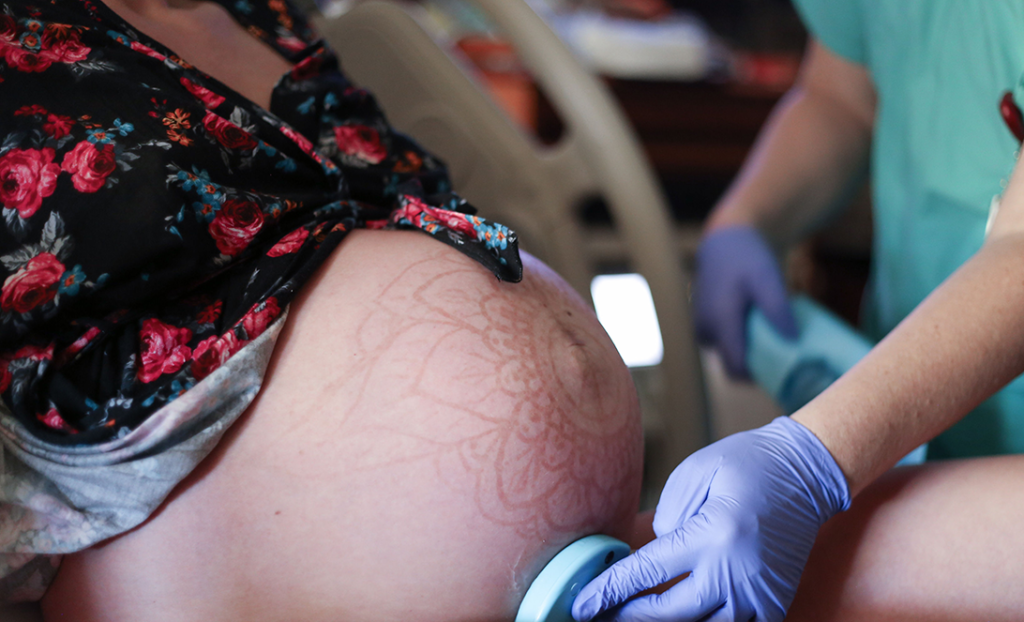
Prenatal Care Guidance
Welcome to Southwest Midwives! We are excited to care for you throughout your pregnancy, birth, and the postpartum period. Below are some general pregnancy guidelines and information about our office.
Contacting the Midwives
Call 970-247-5543. If the office is closed and you have an emergency need to speak with the midwife, press 1 and you will be connected. Please leave a message or call the Family Birth Center (970-764-3150) if you do not receive a call back within 15 minutes.
Prenatal Care Quick Reference (Download)
Common Pregnancy Guidelines
- Your weight and blood pressure will be checked at each visit. If you prefer not to know your weight, please let us know. At your first visit, we will order bloodwork and check your urine for infections.
- Sometimes the midwife will need to attend a birth and your appointment may need to be rescheduled. We do our best to accommodate everyone and ask for your patience.
- Appointments will be every month for the first part of your pregnancy. Once you turn 28 weeks, we will plan to see you every other week, and then at 36 weeks, we will plan to see you weekly until your baby is born.
- We recommend taking a prenatal vitamin during your pregnancy that includes 400-800mcg of folate (folic acid or methylated folate) and 200mg of DHA.
- In order to avoid toxoplasmosis and listeria, do not eat any raw meat or raw fish. Make sure to cook your deli meat. Eat only pasteurized cheeses.
- Sex and exercise are okay as long as it’s comfortable. If spotting or cramping occurs, it can be normal, but please call the office to discuss it with a midwife.
- If you are prescribed a medication by a provider from another practice, please call our office to let us know. We also ask that you call us if you want to begin taking a new vitamin or supplement.
- We recommend that you do not drink more than 12oz (or 200mg) of caffeine per day
- The body is more sensitive to sugar during pregnancy. We recommend reducing sugars in your diet (especially sodas and fruit juices) and focusing on high-protein foods.
- Wear your seatbelt under your belly, low across your hips.
Below are the current recommendations for women and weight gain during pregnancy. Most importantly we will focus on diet and exercise.
- BMI 18.5 (underweight) – weight gain of 28-40 pounds during pregnancy
- BMI 18.5-24.9 (normal)- weight gain of 25-35 pounds during pregnancy
- BMI 25-29.9 (overweight)- weight gain of 15-25 pounds during pregnancy
- BMI >30 (obese)- weight gain of 11-20 pounds during pregnancy
Please call the midwives if:
- You have a fever over 100.4 that does not resolve with Tylenol
- You have vomiting or diarrhea lasting more than 24 hours
- Bleeding from the vagina
- Fluid leaking
- Vaginal discharge that causes itching, soreness, burning or a foul odor
Activities to Avoid
- Scuba Diving
- Douching
- Hot Tubs (nothing over 98 degrees)
- Drinking Alcohol
- Smoking (tobacco or marijuana)
- Flying after 36 weeks
- Traveling greater than 2 hours from the hospital after 36 weeks
- Water skiing
- Exposure to cat stool in cat litter
Childbirth Education Classes
- Southwest Midwives Every Thursday 5:30-7:30 taught by Abbie Downing. See the front desk to sign up.
- Centura Mercy Hospital FREE Online Class (2 weeks)
- Durango Natural Childbirth Call 970-426-9226 for more information

Postpartum Care Guidance
Postpartum Care Quick Reference (download)
Rest and Recover
Please prioritize rest as much as possible when you go home with your new baby. Allow other people to do housework, chores, and errands. Avoid lifting anything heavier than your baby and try to limit stair climbing. Spend lots of time with your baby skin-to-skin and get to know one another. Limit visitors for the first few weeks at home.
Eat a Healthy Diet
Eating well is very important to maintain energy and help you heal after giving birth. Be sure to continue drinking plenty of fluids (80-100 ounces per day). Eat protein-rich foods and snack frequently.
Bleeding
It is normal to have bleeding for up to six weeks after birth. You may notice your bleeding and cramping are more intense while breastfeeding. Breastfeeding helps release a hormone (oxytocin) that helps your uterus return to its normal size and reduce bleeding.
Caring for Stitches
Whether or not you have stitches, your bottom may be very sore following delivery. Try laying on your side and avoiding sitting for long periods of time. Your stitches will dissolve on their own. Use the periwash bottle when urinating. Always pat dry (no rubbing). You can take a sitz bath in a clean tub with Epsom salts to help with healing and comfort.
Pain
You may take 600mg of ibuprofen every 6 hours plus 1000mg of Tylenol as needed for pain. Do not exceed 4000mg of Tylenol in a day. Ice packs, heat, rest, and relaxation techniques may also help with the pain.
Constipation
Many women are nervous about the first bowel movement after giving birth. Gas is very common after birth. It is normal for it to take 1-2 days after birth to have a bowel movement. Make sure you drink plenty of water, eat fiber-rich foods and take a stool softener such as Colace (docusate sodium) 100mg twice daily as needed for the two weeks.
Breastfeeding Support
Family Birth Center- Free breastfeeding consultations. Call 970-764-3151 to schedule
Southwest Midwives Breastfeeding Support Group. Free, every other Monday. Call 970-247-5543 to sign up.
Baby Blues
Most new moms feel some sadness, anxiety, and fatigue as a result of changing hormones and lack of sleep. These feelings usually pass within a few weeks. If you are experiencing extreme feelings of depression or sadness that do not resolve within a week. Please call us.
When to call
- Extreme pain, redness, or foul odor coming from the vagina
- Fever above 100.4
- Pain, redness, or significant swelling in one leg
- Burning or difficulty urinating
- Heavy bleeding (soaking more than 2 large pads in 1 hour or passing a clot larger than the first)
- Foul smell to vaginal discharge
- A very tender uterus when pushing on the lower stomach
- Red, warm tender area on the breast
- A headache that doesn’t go away with over-the-counter medications, hydration, and rest, Blurry or spotty vision that doesn’t go away with rest, or extreme pain on the right side under the ribs.
Appointments
- We will call you in a few days to set up appointments at 2 weeks and 6 weeks postpartum. If you had any other prenatal appointments or ultrasounds scheduled you do not need to call us to cancel those.
Breastfeeding support
- Family Birth Center Free breastfeeding consultations. Call 970-764-3151 to schedule
- Southwest Midwives Breastfeeding support group. Free, every other Monday. Call 970-247-5543 to sign up.

Recommended Books
- Birthing From Within-by Pam Englund CNM, MA and Rob Horowitz, Ph.D.
- The Pregnant Woman’s Comfort Book-by Jennifer Louden
- The Birth Partner-by Penny Simkin
- Pregnancy, Childbirth & the Newborn-by Penny Simkin, Janet Whalley, and Ann Keppler
- Ina May’s Guide to Childbirth-by Ina May Gaskin
- Natural Hospital Birth-by Cynthia Gabriel
- Real food for Pregnancy-by Lily Nichols
- The Womanly Art of Breastfeeding-by Diane Wiessinger
Trusted Websites
Pregnancy and Birth
American College of Nurse-Midwives
Vaccines and Other Guidelines
Centers for Disease Control and Prevention
Medications During Pregnancy and Breastfeeding
National Library of Medicine: Drugs and Lactation Database
